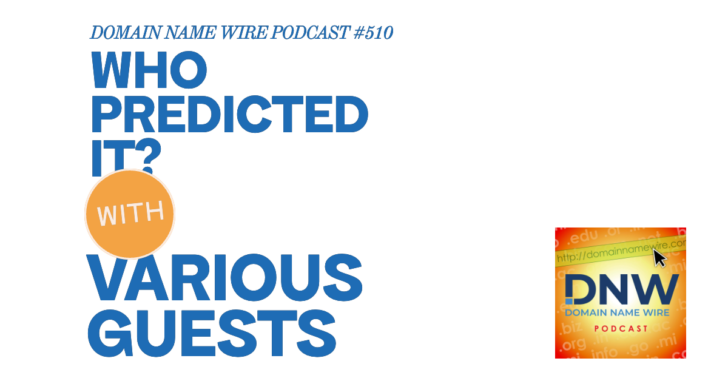ICANN has updated its Registration Data Policy, the rules that govern what data registries and registrars need to collect from registrants and when to publish or supply it through Whois lookups or disclosure requests.
When it becomes enforceable in August next year, the new RDP will make full-fat ICANN Whois policy compliant with EU privacy law for the first time since the General Data Protection Regulation came into effect in May 2018.
But the new policy, which replaces a functionally very similar temporary policy, is notable not only for the extraordinary amount of time it took to produce, but also for not containing a disputed requirement for registrars and registries to quickly turn over private Whois data when human life is at risk.
The policy dictates what contact information registrars must collect from their customers, what they must share with their registries, escrow agents and others, and what they must redact in the public Whois (or Registration Data Directory Services, as it will become known when Whois is retired next January).
It also says that registries and registrars must acknowledge private data disclosure requests no more than two business days after receipt and respond to the requests in full less than 30 calendar days after that, barring delays caused by “exceptional circumstances”.
But, due purely to ICANN community politicking, the policy for now omits previously considered language on “urgent” disclosure requests for use in “circumstances that pose an imminent threat to life, of serious bodily injury, to critical infrastructure, or of child exploitation”.
I’d like to think such circumstances are incredibly rare, but if there’s a situation where a Whois disclosure could help prevent a bomb going off at a major internet exchange, a trans rights activist being hounded into suicide, or a little kid getting raped on a livestream, the new ICANN policy does not account for that.
The version of the policy published in July last year (pdf) did include an urgent requests provision, requiring contracted parties to either turn over the data or tell the requester to get lost within 24 hours of receipt.
But it also contained a bunch of exceptions that could allow registrars to extend that deadline by up to three business days. When weekends and public holidays are taken into account, this could mean as much as a full calendar week to process an “urgent”, potentially life-saving request.
For that reason, the Governmental Advisory Committee wrote to ICANN (pdf) last August to ask it to revisit the policy language, chuck out the reference to “business” days, and stick to a 24-hour response window
The original Expedited Policy Development Process Working Group that came up with the policy recommendations had not specified how long registrars and registries should have to respond to urgent disclosure requests, punting that decision to the Implementation Review Team that drafted the final language.
An August 2022 draft (pdf) put out for public comment made the response window two business days, with a possible one-day extension, but this was reduced to 24 hours last year in what registrars describe as a “significant compromise” given the operational reality of responding to disclosure requests.
In August last year, the Registrars Stakeholder Group told ICANN (pdf) that its members “are committed to responding to Urgent requests in the most swift and expeditious manner possible” but said it objected to the GAC’s last-minute demands for the urgent disclosures policy to be rewritten.
From the registrars’ perspective, handling disclosure requests for personal data is not a simple ask. It’s a legal decision, balancing the privacy rights of the registrant with the rights of others to access that information.
Get it wrong, and you’re open to litigation and fines substantial enough to be expressed as a percentage of your revenue. And, money aside, who wants to be the guy who, for example, accidentally helps the Iranian morality police murder a bunch of schoolgirls for wearing the wrong type of hat?
But the argument between the registrars and the governments comes down to issues of ICANN process. Both the GAC and the RrSG claimed the urgent disclosures bunfight highlights deficiencies in the ICANN multistakeholderism, but for different reasons.
ICANN’s response to this disagreement was to remove the urgent requests clauses from the policy altogether, in the hope that further talks can find a solution. Chair Tripti Sinha wrote to the RrSG and GAC a couple weeks ago to tell them:
the Board concluded that it is necessary to revisit Policy Recommendation 18 concerning urgent requests in the context of situations that pose an imminent threat to life, serious bodily harm, infrastructure, or child exploitation, and the manner in which such emergencies are currently handled. For this, we believe that consultation with the GNSO Council is required.
ICANN has essentially kicked the can, which was what the GAC had asked for. The RrSG wanted the July 2023 language (one-plus-three days) or August 2022 language (two-plus-one days) published in the final policy.
It’s stuff like this that makes one scratch one’s head, stroke one’s chin, and wonder whether ICANN really is fit for purpose.
There were 2,312 days between the day the European Commission first proposed the GDPR to the day it became effective in all EU member states.
But 2,590 days will have passed between the day the GNSO Council initiated the EPDP and the day the new Registration Data Policy will become effective on all contracted parties, next August.
The lumbering, then-28-state European Union was faster at passing policy than ICANN, even when ICANN was using an “expedited” process.
And what ICANN eventually came up with couldn’t even agree on ways to help tackle murder, economic catastrophes, and the rape of kids.
The post Whois policy published without life-saving disclosure rule first appeared on Domain Incite.

